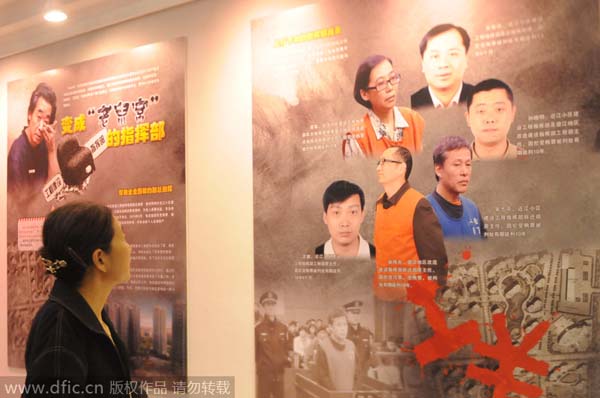 |
|
People visit an anti-corruption exhibition in Hangzhou, Zhejiang province, Nov 8, 2012. [Photo/IC] |
The plenary sessions of the National People's Congress (NPC) and the National Committee of the Chinese People's Political Consultative Conference (CPPCC), popularly known as the "two sessions", kick off this week.
Here is a list of 26 hot topics.
A|Anti-corruption
The Chinese government has adopted a zero-tolerance approach in fighting corruption since the 18th National Congress of the Communist Party of China (CPC) in November 2012.
In 2015, China's top anti-graft watchdog said it will net more "tigers" and "flies" -- corrupt government officials at both higher and lower levels -- and combat graft in state-owned enterprises (SOEs).
But how to build a long-term mechanism to supervise the exercise of official power requires suggestions from NPC deputies and CPPCC members.
B|Breakup of Monopolies
Although China has eased market access in many industries and started SOE reforms in a bid to mobilize private investment and break monopolies, there is still a lot to do to achieve fair competition. Experts believe the private sector will reap more fruit this year.
C|Check of Power
In the past two years, China's central government has prioritized the task of cutting red tape and delegating power to lower-level governments.
Altogether, 798 administrative approval items have been canceled or delegated to local governments. The move has curbed corruption and stimulated entrepreneurship. More progress can be expected in the area.
D|Democracy
In February, the CPC Central Committee published a document proposing to promote "consultative democracy".
Consultative democracy -- defined as a democratic pattern in which, led by the CPC, all sections of society are consulted on major issues before and during policy-making processes -- helps Chinese people take part in the country's governance and makes sure that diverse voices can be heard and consensus can be reached.
The two sessions are perfect examples of China exerting consultative democracy and offer a window for people to observe and understand China's democracy.
Related Stories